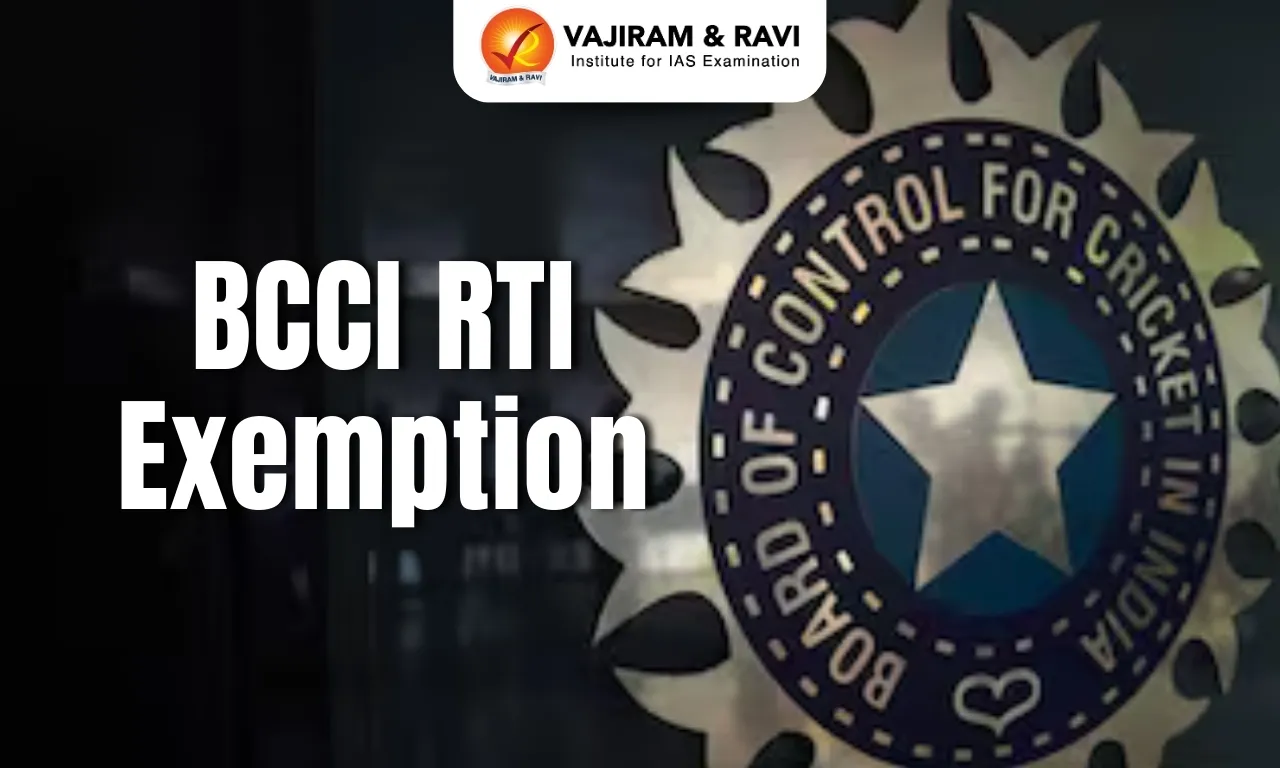What’s in Today’s Article?
- Why in News?
- What is the National Medical Commission (NMC)?
- What is the Medical Assessment and Rating Board (MARB)?
- How will the Medical Colleges be Inspected?
- What is the Importance of the New AEBAS?
Why in News?
- The Medical Assessment and Rating Board (MARB) under the National Medical Commission (NMC) underlined the importance of the new Aadhaar Enabled Biometric Attendance System (AEBAS).
- The AEBAS will be significant for the assessment of new medical colleges or colleges that are looking to increase the number of seats in the upcoming academic year.
What is the National Medical Commission (NMC)?
- The NMC is the country’s apex medical education regulator, which has been constituted by an act of Parliament known as National Medical Commission Act 2019.
- It replaced the Medical Council of India on 25 September 2020.
- The aims of the NMC are to –
- Improve access to quality and affordable medical education,
- Ensure availability of adequate and high-quality medical professionals in all parts of the country;
- Promote equitable and universal healthcare that encourages community health perspective and makes services of medical professionals accessible to all the citizens;
- Encourages medical professionals to adopt latest medical research in their work and to contribute to research;
- Objectively assess medical institutions periodically in a transparent manner;
- Maintain a medical register for India;
- Enforce high ethical standards in all aspects of medical services;
- Have an effective grievance redressal mechanism.
What is the Medical Assessment and Rating Board (MARB)?
- The Government of India has established the MARB (in 2023) under the NMC Act 2019 for assessing and rating of medical institutions (Government and Private) for their compliance with standards laid down by the NMC.
- Functions of the MARB:
- Grant permission for establishment of a new medical institution, or to start any postgraduate course or to increase the number of seats.
- Carry out inspections of medical institutions for assessing and rating such institutions.
- Conduct, or where it deems necessary, empanel independent rating agencies to conduct, assess and rate all medical institutions.
- Make available on its website or in public domain the assessment and ratings of medical institutions at regular intervals.
- Take such measures, including issuing warning, imposition of monetary penalty, reducing intake or stoppage of admissions, etc.
How will the Medical Colleges be Inspected?
- For colleges looking to increase seats, a physical inspection will be carried out only if they have adequate faculty members with an attendance of at least 75% for the three prior months.
- For new medical colleges, the AEBAS registration of all faculty members should be completed and attendance for at least 10 working days should be available at the time of inspection.
- Government medical colleges that have been running MBBS programmes for at least five years will be exempted from physical inspection for increasing PG seats.
- Private medical colleges and government medical colleges starting PG courses will still be physically inspected.
What is the Importance of the New AEBAS?
- To increase transparency and ensure that medical colleges have adequate faculty and patients throughout the year, the NMC introduced ways of monitoring the colleges remotely throughout the year.
- Along with the AEBAS, medical colleges are required to share their Health Management Information System (HMIS) data that captures how many patients are treated at the hospital.
- The move is essential seeing the increase in the number of medical colleges in the country, making it difficult to conduct physical inspection all the time.
- The pipeline dream would be to have no need for physical inspections at all, but this will supplement the physical assessments for now.
Q1) How are the medical colleges in India regulated?
The Medical Council of India and the Dental Council of India were set up under Acts of Parliament with a view to regulate medical and dental education in the country.
Q2) What is the National Testing Agency (NTA)?
NTA has been established as a premier, specialist, autonomous and self-sustained testing organisation to conduct entrance examinations for admission/fellowship in higher educational institutions.
Source: Proper biometric attendance system a must for increasing seats in medical colleges: MARB
Last updated on August, 2025
→ UPSC Mains Admit Card 2025 will be released soon at www.upsc.gov.in.
→ UPSC Mains 2025 will be conducted on 22nd August 2025.
→ UPSC Notification 2025 was released on 22nd January 2025.
→ UPSC Calendar 2026 is released on 15th May, 2025.
→ UPSC Prelims Question Paper 2025 and Unofficial Prelims Answer Key 2025 are available now.
→ UPSC Prelims Result 2025 is out now for the CSE held on 25 May 2025.
→ The UPSC Vacancy 2025 were released 1129, out of which 979 were for UPSC CSE and remaining 150 are for UPSC IFoS.
→ UPSC Prelims 2026 will be conducted on 24th May, 2026 & UPSC Mains 2026 will be conducted on 21st August 2026.
→ The UPSC Selection Process is of 3 stages-Prelims, Mains and Interview.
→ UPSC Result 2024 is released with latest UPSC Marksheet 2024. Check Now!
→ UPSC Toppers List 2024 is released now. Shakti Dubey is UPSC AIR 1 2024 Topper.
→ Also check Best IAS Coaching in Delhi















